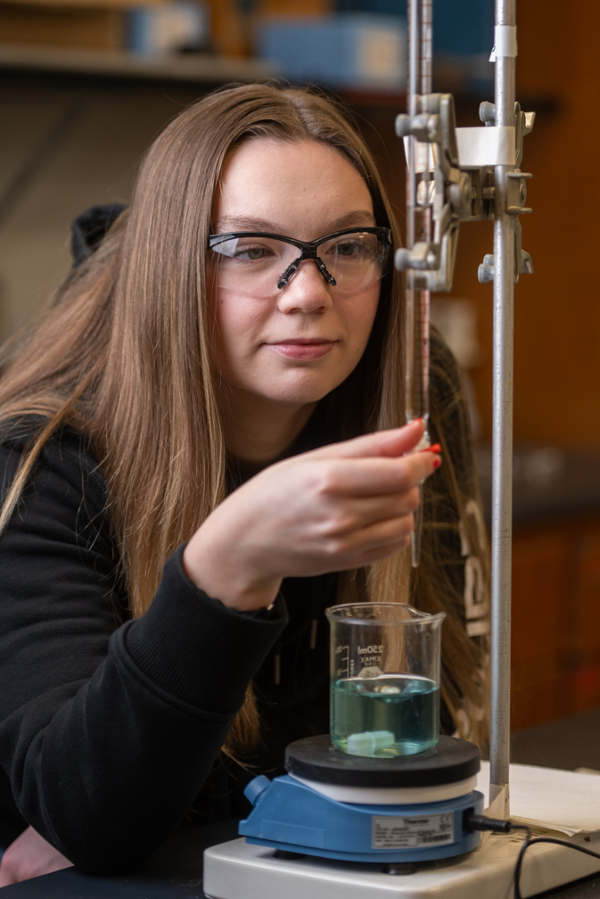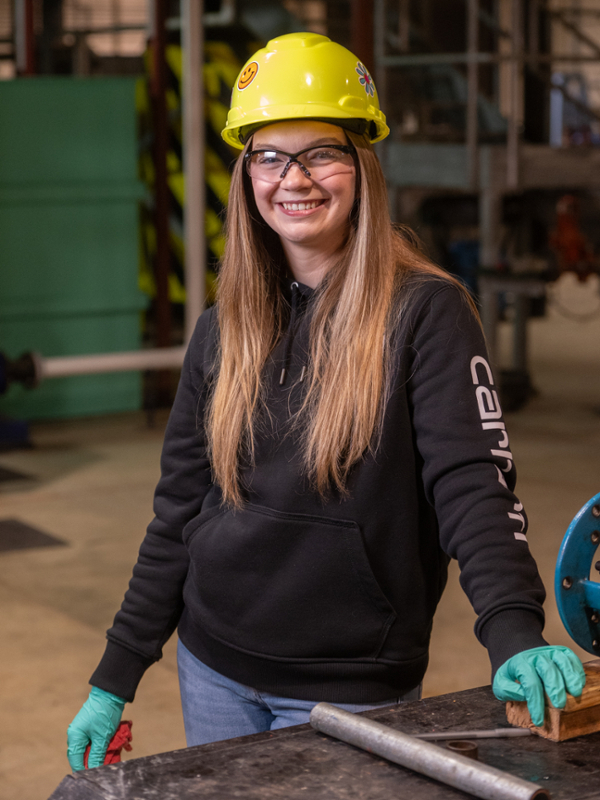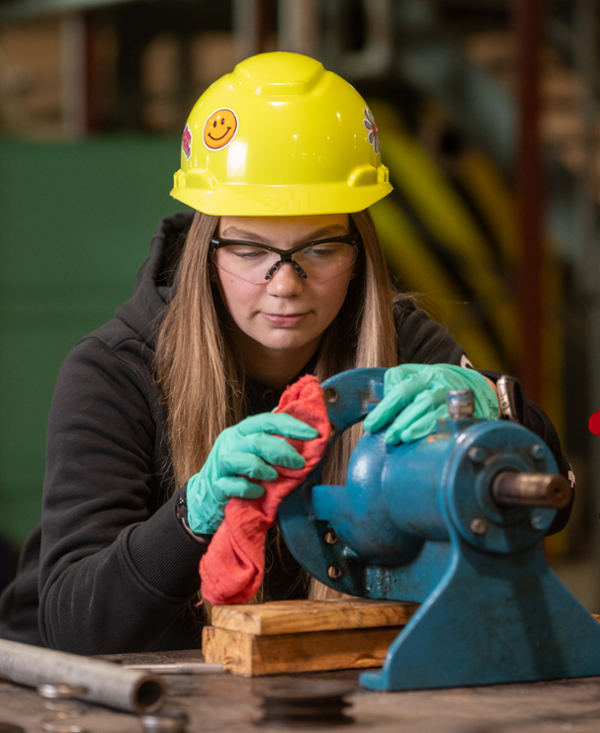A Visit with the MSD Scholarship Winner at SIUE's Environmental Resources Training Center (ERTC) Pilot Plant

For nearly 50 years, Southern Illinois University at Edwardsville’s Environmental Resources Training Center (ERTC) has been the designated learning institution for the continuing education of personnel involved in the operation, maintenance and management of drinking water and wastewater treatment systems for the Illinois Environmental Protection Agency (IEPA). More recently, SIUE and the Metropolitan St. Louis Sewer District (MSD) have teamed up to expand the makeup of the workforce.
One scholarship was awarded for the FY 2024 for students in ERTC’s Water Quality Control Operations Program. Scholarship recipient Elizabeth Bowyer offers insight as a student of the esteemed certificate program and grants a tour of the hands-on training she has received in the ERTC pilot plant. Congratulations on the MSD scholarship, Elizabeth. How did you learn that a career at a water treatment plant may be a path to pursue?
Congratulations on the MSD scholarship, Elizabeth. How did you learn that a career at a water treatment plant may be a path to pursue?
Thank you so much! I spent the last four summers working at the Wastewater Treatment Plant in my hometown. It was during my time there that I became interested in the industry! I studied Political Science and Justice Administration during undergrad, so when I learned that a career in compliance and regulation was an option, that is when I really decided that it was a career I wanted to pursue!
What type of positions are available when it comes to keeping drinking water and recreational water safe for human consumption and contact?
There are so many different positions in the water and wastewater industry! There are positions in the distribution system, the lab, operator positions, supervisory positions, positions in regulatory and compliance, and more. There is something for everybody in this field!
How did you receive the news that you won a $10,000 scholarship, an internship and assistance with job placement? That seems like a pretty nice package.
Yes! I submitted my application for the scholarship and later found out that I was a finalist. I then went through the interview process and received an email about a week later informing me that I was a recipient of the scholarship! I was extremely excited and am honored, and very thankful, to have been chosen!
The scholarship is available for communities that have not had a strong representation in this field—such as women and people of color. Do you feel a certain responsibility as a pioneer?
I do feel a certain responsibility to help change the stigma surrounding women working in the water and wastewater industry. Studies have shown that less than 1 in 5 operators in the industry are women, and that’s something that I firmly believe should change. It has always been a male-dominated industry, but that doesn’t mean that women should be deterred from pursuing a career within it!
Where is home for you?
While I currently live here in Edwardsville for the program, I am originally from Shelbyville, Illinois!
Were you conscious of environmental protections and concerns growing up?
I would say I was conscious of certain environmental protections and concerns while growing up. I knew what they taught in school about conserving water, pollution, etc., but I was never conscious of those things to the extent I am now! There are so many things we can do to help protect our resources that I didn’t learn about until I entered this industry! What do you wish people who have not been as hands on as you have should know about human interaction with natural resources?
What do you wish people who have not been as hands on as you have should know about human interaction with natural resources?
Most people probably just assume that when they turn the faucet on, clean water will come out, and when they flush the toilet, that the water will disappear down the drain. Something I think people need to know is that there are entire operations, and people, that ensure those two processes happen. If, and when, something goes wrong in either of these processes, there are people working day (and occasionally night) to ensure that the problem is fixed as soon as possible. Never take these utilities for granted!
Please tell us about the pilot plant and your day-to-day activities?
Every morning we spend two hours working in the pilot plant, which is a scaled-down version of a normal drinking water and wastewater treatment plant! Each week our groups rotate what sector we are responsible for--water or wastewater operations, lab, or maintenance. After we are done in the plant, we have normal classes, one in the morning and one right after lunch! We also go on field trips to nearby treatment facilities and listen to guest speakers from the industry!
Anything else you would like for everyone to know from an insider?
My experience at the ERTC has been nothing short of amazing! In just one semester, I have already become an Operator in Training (OIT) and have both a wastewater certification and a drinking water certification. Not only that, but I have made great connections with classmates, instructors, and others within the industry. I have loved my time at the ERTC thus far and am looking forward to the rest of my time here!
Thank you, Elizabeth.
It has been reported that the IEPA projects the state of Illinois may need as many as 400 additional water treatment operators each year. SIUE ERTC’s Water Quality Control Operations Program consists of two semesters of operations training, followed by a ten-week internship at a treatment plant. Graduates are eligible to take Illinois and Missouri certification exams to become certified as public drinking water supply operators and wastewater operators.
PHOTOS: Elizabeth Bowyer, ERTC MSD scholarship winner, at SIUE's Environmental Resources Training Center (ERTC) Pilot Plant









